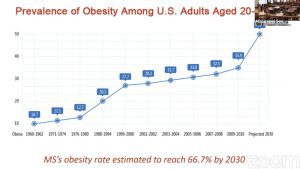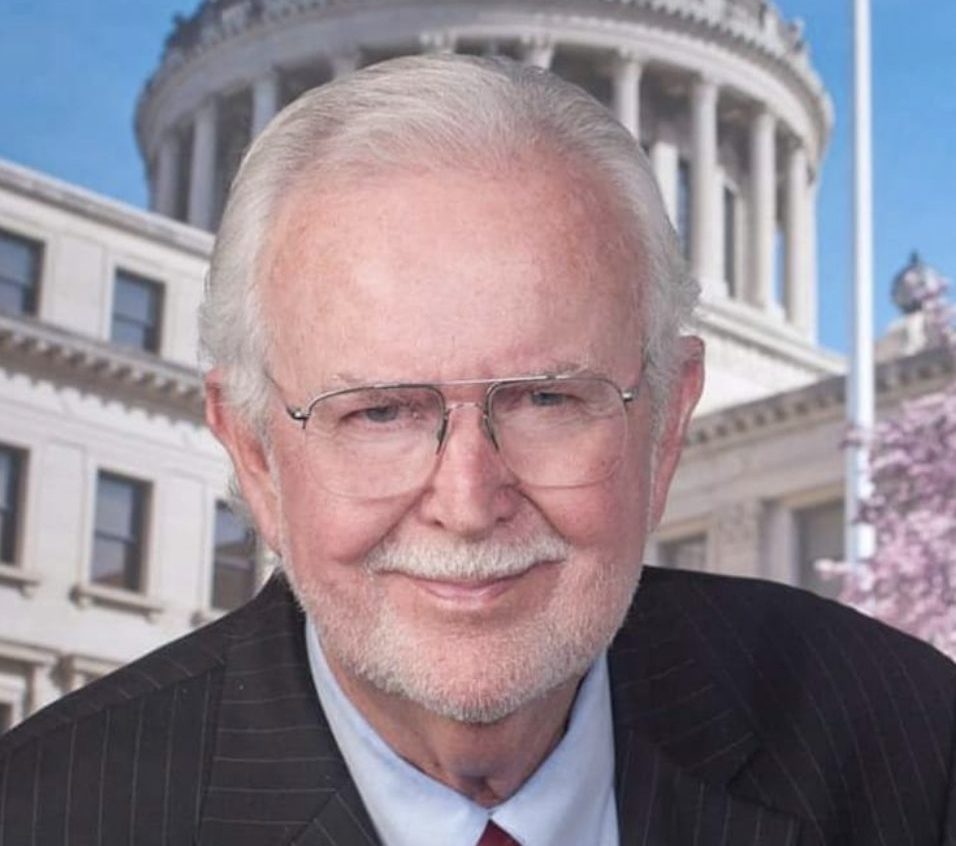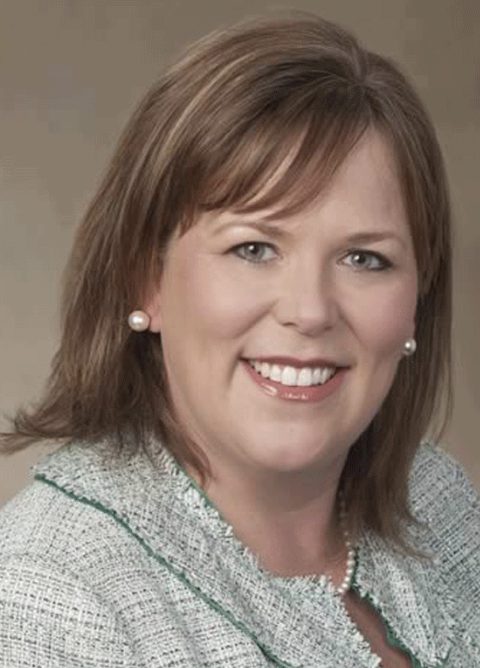
Lawmakers heard from MSDH, UMMC, Mississippi Division of Medicaid, Metabolic Medicine of Mississippi, and more.
On Thursday, the Mississippi Senate Medicaid Committee met to hear from speakers on topics ranging from postpartum care, obesity, and autism.
Dr. Anita Henderson, President of the Mississippi Chapter of the American Academy of Pediatrics, gave the first presentation of the day on the importance of health care for new mothers.
Dr. Henderson said that states with 12-month postpartum care have seen increased visits for preventive care. Traditionally, about half of all moms with Medicaid who deliver do not have a postpartum visit.
“In Mississippi between 2013 and 2016, there was a total of 136 maternal deaths occurring during pregnancy or within one year of the end of pregnancy,” the presentation said. “The Mississippi pregnancy-related mortality ration was 33.2 per 100,000 live births. This was double the average US ration of 17.3 deaths per 100,000 live births.”
Dr. Henderson explained that more than 80% of pregnancy related deaths in the United States were preventable. One third of all maternal deaths occur more than 60 days after delivery.
Among pregnancy-related deaths with information on timing, 22% of deaths occurred during pregnancy, 25% occurred on the day of delivery or within 7 days after, and 53% occurred between 7 days to 1 year after pregnancy.
“Currently it takes about a month for pregnant moms to get enrolled in Mississippi Medicaid,” Henderson said. “Then it may take another 4-6 weeks for them to get their first OB appointment.”
Dr. Daniel Edney, State Medical Officer, thanked the legislators for their interest in this critically important public health issue. He explained that his remarks on the topic would be from a public health standpoint on importance of health care for new mothers.
He said that unfortunately, the topic of postpartum Medicaid extension has gotten “muddled up” with the topic of Medicaid expansion.
“We’re talking about maintaining current benefits for who are already enrolled in Medicaid,” Dr. Edney said. “We’re not talking about enrolling a higher number of women into Medicaid, but to have the option, that’s before us now, to continue the present services we’re providing through twelve months rather than sixty days.”
“Mississippi continues to struggle with both our maternal and infant morbidity and mortality,” Dr. Edney said.
He said that the rest of the Southeastern states have either already adopted twelve months postpartum or they have adopted Medicaid expansion. Mississippi is only one of two states in the nation who have not adopted either.
Dr. Martin Tucker, Chairman of the UMMC Department of Obstetrics and Gynecology, gave a presentation on maternal-fetal physiology.
“The physiology of pregnancy is like a nine-month stress test on a woman’s body,” Tucker said.
Dr. Tucker discussed the importance of physiology and said every pregnancy is at risk for the following things:
- CV– heart failure, myocardial infarction, arrhythmias, hypertensive disorders
- Respiratory– pulmonary edema, infections
- Hematologic– anemia, blood transfusion, inherited anemias made worse, thromboembolic disease, clotting disorders
- Renal– infections, kidney stones, renal failure
- GI– liver failure/dysfunction, gall bladder disease
- Endocrine– diabetes, thyroid disease
“Our goal with preconception care is to optimize health and knowledge before pregnancy,” Dr. Tucker said.
Dr. Mobolaji Famuyide, Chief of the Division of Newborn Medicine at UMMC, talked about the neonatal case for postpartum care. Dr. Famuyide presented different cases to lawmakers:
- Case #1- Preexisting hypertension
- Case #2- Preexisting diabetes
- Case #3- Untreated postpartum depression
- Case #4- Inadequate interpregnancy interval
Will Ervin, Deputy Administrator for Health Policy and Services at Mississippi Division of Medicaid, said there around 160,000 more individuals eligible for Medicaid now than in March 2020.
Before the pandemic, the number of individuals in the pregnant women category of eligibility consistently hovered on 13,000-14,000. Since the continuous enrollment requirement was effective, that number has climbed above 45,000.
Ervin said based on that information, approximately 32,000 individuals in the pregnant women category of eligibility retained full Medicaid coverage as a result of the continuous enrollment requirement.
Ervin said extending postpartum coverage for one year would cost roughly $32 million total, which includes both state and federal spending. The state share, he explained, is projected to be a little more than $7 million.
Khanh Nguyen, Project Manager of NCSL Health Program, said all states have some form of maternal mortality review committee (MMRC), most of which were legislatively created.
The Mississippi Maternal Mortality Review Committee (MMRC) was established in July of 2017 following passage of House Bill 494. MMRCs are multi-disciplinary committees that convene at the state or local level to comprehensively review deaths of women during or within a year of pregnancy.
Nguyen provided several examples of state committee review reports recommending extending postpartum coverage to a year.
Kathryn Costanza, Medicaid Program Principal at NCSL, discussed how states have leveraged different Medicaid strategies to adopt postpartum coverage and shared legislative examples from the State Plan Amendment (SPA option), including:
- Alabama SB 106 (2022)
- Arizona HB 2863 (2022)
- Delaware HB 234 (2022)
- Georgia SB 338 (2022)
- Maine LD 1781 (2022)
- West Virginia HB 2266 (2021)
After a mid-day break, lawmakers heard from experts on obesity and autism.
Christy Davis with the Metabolic Medicine of Mississippi showed data that puts Mississippi as second in the nation for obesity for children between the ages of 10 and 17. It is estimated that 93% of those who have obesity also have unmet medical needs.
The data shows that obesity took a sharp increase in the late 70’s and early 80’s. One theory centers around the introduction of the “Big Gulp” drink at 7 Eleven gas stations. Senator Wiggins asked the presenter if this was a theory or fact, to which she responded, “We think it is more fact.”
Over the next 20 years it is expected that obesity rates in the state will contribute to over 415,000 cases of type 2 diabetes, over 800,000 new cases of coronary heart disease and stroke, over 700,000 cases of hypertension, nearly 500,000 cases of arthritis, and over 100,000 cases of obesity related cancer.
The CDC believes there are roughly 600 to 700,000 Mississippians on the path to developing diabetes. The average cost to treat diabetes is over $16k per person yearly.
Experts addressing services for autist individuals in Mississippi say there are simply not enough resources for people who require therapeutic treatment. Smaller providers in Mississippi expressed a desire to see increased Medicaid rates as well as more transparency within the Department of Medicaid.
Presenters said that with increased information from the department, it could help smaller providers in the community who are interested in accepting Medicaid, become partners.
You can read Y’all Politics coverage from Thursday’s meeting below.
HAPPENING NOW: The Senate Medicaid Committee is meeting to hear from speakers on topics such as postpartum care, obesity, and autism. #msleg
WATCH -> https://t.co/PjtXSrhdFM
— Magnolia Tribune (@magnoliatribune) December 1, 2022
**Contributions from Senior Capitol Correspondent, Sarah Fullen.**












